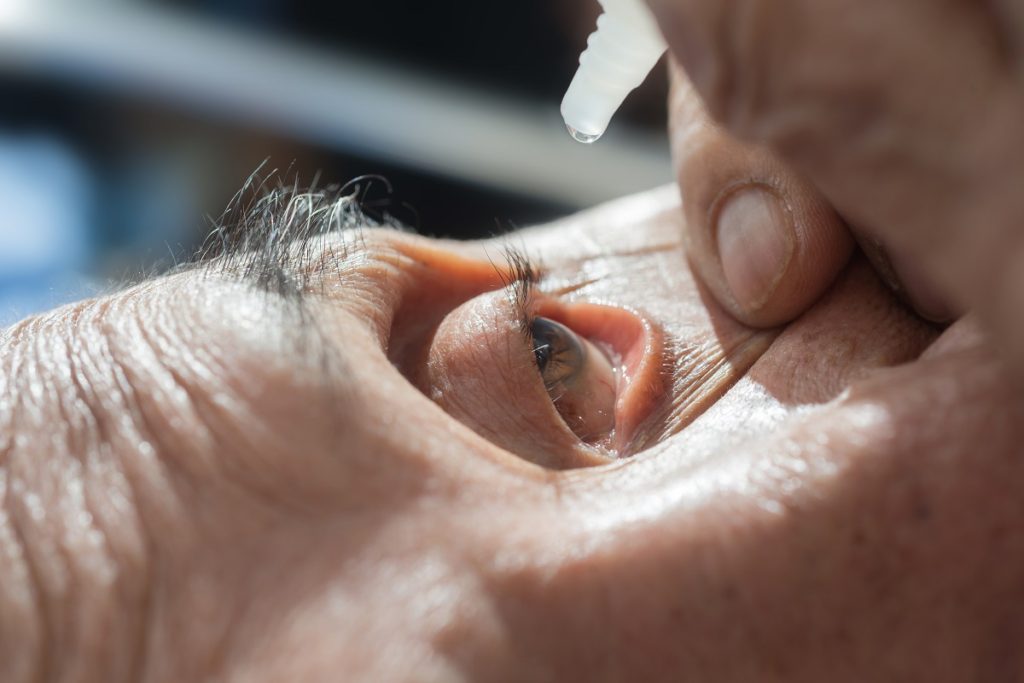Like any medication, eyedrops must be taken as directed. And unless your doctor has instructed you to do so, eyedrops should not be taken on a daily basis for weeks at a time. Eyedrops are meant only as a temporary fix — not a long-term solution. In fact, overusing eyedrops can actually put your eye health at risk. Dr. Ernest Kornmehl explains more in this post.
May Cause Increased Eye Dryness, Redness and Irritation
Medicated and allergy eyedrops are meant to soothe red, irritated eyes, but overusing them may actually make the symptoms worse. Here’s how:
When the eyes become irritated, the tiny blood vessels that nourish the sclera, or white part of the eye, start to dilate. Medicated eyedrops help to constrict these enlarged blood vessels to ease redness and irritation. However, prolonged use of the drops can actually cause a “rebounding” effect. Since blood flow slows or stops, less oxygen and nutrients can get to the sclera; in turn, the blood vessels respond by enlarging, causing a cycle of persistent redness and irritation.
May Wash Away Your Natural Tears
Artificial tears provide lubrication if your natural tear production diminishes or the quality of your tear film is compromised. However, overusing artificial tears can actually flush out the tears your eyes do produce. Or, it can wash away the oily layer of the tear film that helps the tears “stick” to the surface of the eyes. As a result, the tears evaporate too quickly and dry eye problems continue.
May Hide Serious Underlying Problems
If symptoms like eye redness, irritation or dryness endure despite prolonged use of eyedrops, there may be something more serious going on, such as inflammation, an eye infection, eye trauma or something stuck in the eye. And the longer the issue goes undetected, the more serious the consequences may be. Any ongoing symptoms should always be evaluated by a professional to confirm or rule out a serious underlying cause.
Contact Dr. Kornmehl
If you have dry eyes, eye irritation or other symptoms that won’t resolve on their own, you should have your eyes examined by a professional. Dr. Kornmehl is happy to answer your questions about dry eyes, eye infections and other eye problems. Simply contact our Boston office today.
